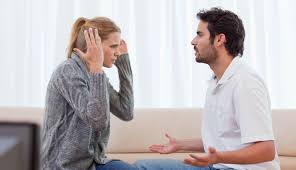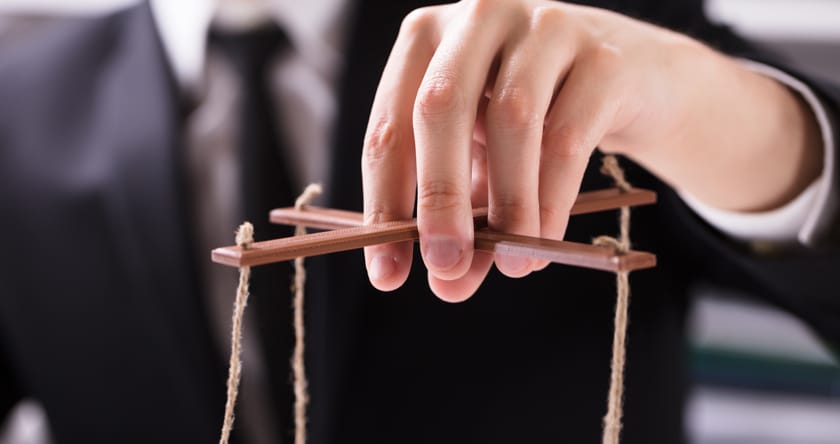Generally, we have five stages of grief you’d deal with losing someone you love. They are;
1. Denial:
Well, at this point, accepting that he or she is gone can be really intense and/or difficult for you. So, you just tell yourself that they’re not gone even though that’s not the truth.
2. Anger:
This is the phase where you’re clouded with a lot of emotions, basically categorized as anger. Well, you’re angry because you feel you could have done more or even sometimes angry at them for endangering them and leaving you all alone.
3. Bargaining:
Here, you try to elude yourself. Basically, dodge the topic but deep down you’re hurt and scared about future losses that you’re not ready to deal with. Grief can be a fickle creature though.
4. Depression:
Generally, depression can be quite a tough blow. Because at that point you feel emptiness, numbness, those feelings of being dead inside. Well, because he or she was really important to you and that’s the only way you know to cope with your loss.
5. Acceptance:
Finally, you realize there’s no other place to go but up. Acceptance is never easy though, everyone takes as long as they take. But this point to a steppingstone to your healing from losing someone you love.
However, not everyone experiences all five stages of grief or goes through them in this particular order. Basically, grief is different for every person, so you may begin coping with loss in the bargaining stage and find yourself in anger or denial next. The loss of a loved one can be frightening in general.
FEAR OF LOSING SOMEONE YOU LOVE
In adulthood, losing a trusted partner is always quite difficult. A series of losses in childhood, through adolescence, and into adulthood can cause distressing feelings to grow as you age and can lead to the outright fear of losing someone you love. Basically, that whole thought destroys you. But it could also be that, with age, you realize that the only thing permanent is impermanence. Additionally, that theory doesn’t still reduce your fears. Although, this fear is valid. Because one of the toughest things to go through in life is losing someone you love. However, there are times when the fear starts to affect your life and even your relationships with other people, negatively. How, then, can you overcome the fear of losing a loved one?
WHY DOES THIS FEAR OF LOSING SOMEONE GROW?
It is not uncommon for the fear of losing someone you love to begin in childhood. Although, childhood loss and trauma might be different by a rock slide in comparison to romance and romantic relationships. But your childhood relationships generally form the foundation for all of your future relationships. Generally, a common source of this fear is parental neglect or abuse. Oftentimes, otherwise incredible parents do not even realize they are being neglectful. This is partly because some don’t realize that emotional neglect is a form of neglect, too. However, they may unintentionally neglect, overlook, or underestimate the emotional needs of a child. Basically, this can sometimes influence the way a person attaches to others or experiences and copes with feelings.
In addition, losing someone you love can also prompt feelings of fear for future losses. When a loved one has died, or someone you loved and trusted left or betrayed you. Then you start to develop a strong fear of having the same thing happen over and over again. These feelings are not easily recognized, identified, or deciphered but they function as a silent undercurrent to your day-to-day life and only show themselves when a new relationship has begun. These feelings can sometimes surface in the form of clingy, anxious, controlling behavior, unrealistic demands placed on your partner. Additionally, some other experiences that can strongly damage your mental health can also influence how you see the loss of losing someone.
CAN MY FEAR Of LOSING SOMEONE BE THE FEAR OF LOSS OR ABANDONMENT?
Although, the two can coincide for some people. However, losing someone you love can come in many forms. Sometimes it might be that death can take your loved ones. But sometimes it can be the case of a new job or even an unexpected life change or losses in other areas. Unfortunately, the loss is a part of life and cannot be prevented or avoided entirely. Although it seems to make sense to adopt an attitude of, “I’ll abandon you before you abandon me,” kind of personality which some people do. But you are likely to feel pain in both situations. Instead of experiencing that stabbing pain of not having to love or having to lose your loved one, you may still experience some sort of pain of loss when it wouldn’t have occurred otherwise.
WHAT IS THE FEAR OF LOSING SOMEONE YOU LOVE CALLED
Generally, the fear or anxiety of losing someone we love is called thanatophobia. However, thanatophobia also has another meaning which is the fear of death. That is when someone is afraid of death or the death of someone close to them. Then they have thanatophobia. This word originates from two Greek words though “thanto” which means death and “phobia” which means fear.
WHAT PHOBIA IS THE FEAR OF LOSING SOMEONE YOU LOVE
Thanatophobia which is the fear of losing someone you love also has another meaning as we have earlier established which is the fear of death. Someone is said to have thanatophobia when they are either scared of death or scared of losing someone they love. Fortunately, it is normal for someone to be anxious about someone close to you; it doesn’t necessarily mean there’s trouble with your mental health. But, in certain people, these matters can grow into more awkward fears and worries which in turn lead to anxiety.
WHAT TO DO WHEN YOU LOSE SOMEONE YOU LOVE
Sometimes, the fear of abandonment is realized, and your loved one passes away, leaves, or is taken away. Although learning to deal with the fear itself is important. Because at some point you will have to cope with your worst fear being realized. Additionally, the manner in which you grieve will likely depend on the circumstances surrounding your loss and other factors. However, a lot of signs and symptoms of grief will be the same. When you’ve lost a loved one, there are some healthy ways to cope are;
1. Letting Yourself Grieve:
When you lose a loved one, regardless of circumstances or how you lost them. It is important and of course healthy to let yourself grieve. Although, it can be tempting to try to leap into a new relationship or find a quick replacement for your loss. However, rebounds are most likely to do more damage than good. Though grieving is usually not a linear process; you are not likely to grieve for a few days, weeks, or months, and then move on. Instead, grief can flow, it takes as long as it takes and appears without warning months or even years down the road and that is okay basically. Without a doubt, letting yourself the room and grace to grieve is the best medicine you can give yourself after losing someone you love.
2. Taking Some Time Off:
When you have lost a loved one to death, abandonment, or any other source, give yourself time to slow down and rest. Even though you feel you need to take time off work, school, or your responsibilities for a while, and then do it. Carve out time for your self-care, turn to your support system, and do anything else that is most effective and healthy for you in general. Losing someone might seem like what happens every other day, but it can also take a lot out of you mentally and physically, so you might need to take additional time to rest.
3. Allow Yourself To Feel:
The last thing you want is to feel dead inside. A lot of people prefer shunning their feelings instead of letting themselves feel and breathe. Even though you might feel despair and pain one minute and overwhelming nervousness or anger the next. That is okay, let yourself go through this grieving process. You as well experience some intense feelings of guilt when you experience moments of joy or happiness in the midst of your pain. But this is also a rather typical experience. It’s okay to feel happy even when you have lost someone, just console yourself that he or she is in a happier place.
CONCLUSION
When you are in dire need of help healing from a fear of loss or something else that’s affecting the way you feel inside, consider seeing a therapist or counselor, or psychologist. Regardless of whether you find someone to work with in person or through an online therapy service, reaching out for help and support when you need it can really do you much good.
LOSING SOMEONE FAQ’S
Have do I cope with loss?
Well, coping with loss is different for different kinds of people. But all you need to a stable outlet to vent.
How many stages of grief are in when coping with loss?
There are five major stages of grief; denial, anger, bargaining, and acceptance. However, not everyone goes through this just as it’s in this order. But everyone goes through it when coping with loss.
How do you feel when you lose someone close to you?
Well, you’d feel the intense pain and numbness inside. Also, there’s this disbelief and anger you’d feel too.
How do I get my life back on track after I lose someone?
Basically, try looking at life from a different angle. You just have to live your life being happy. Also, consider the feelings of that person you lost, they would probably not want you wasting away.
Why is losing someone so painful?
It can be quite painful because during this stage, the stress hormones in our brains which in turn cause this excruciating and stabbing pain you’d feel.





